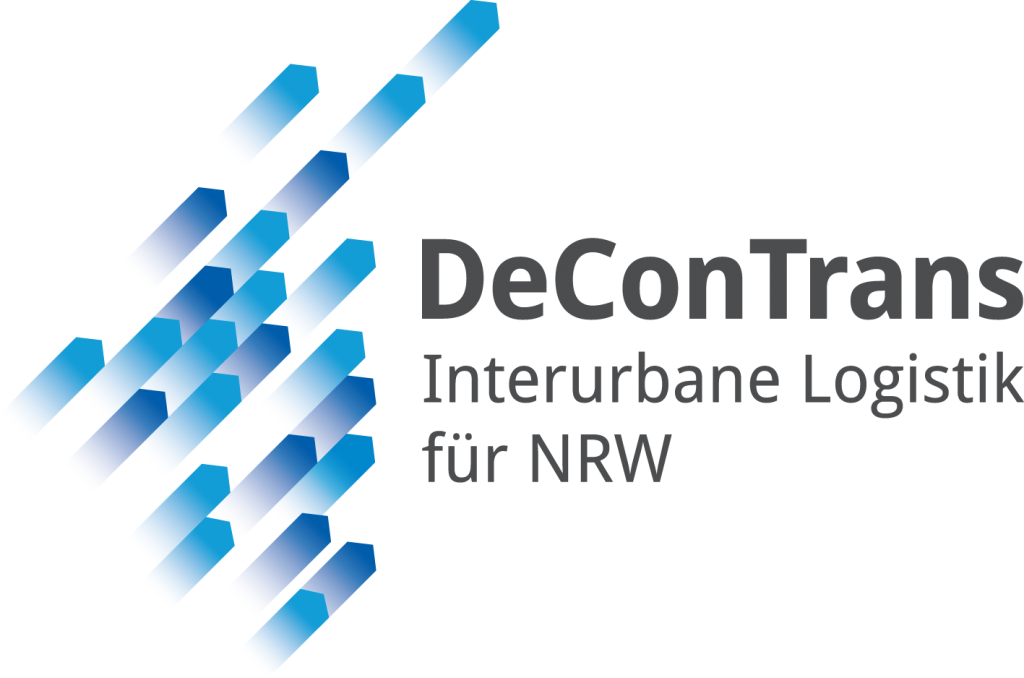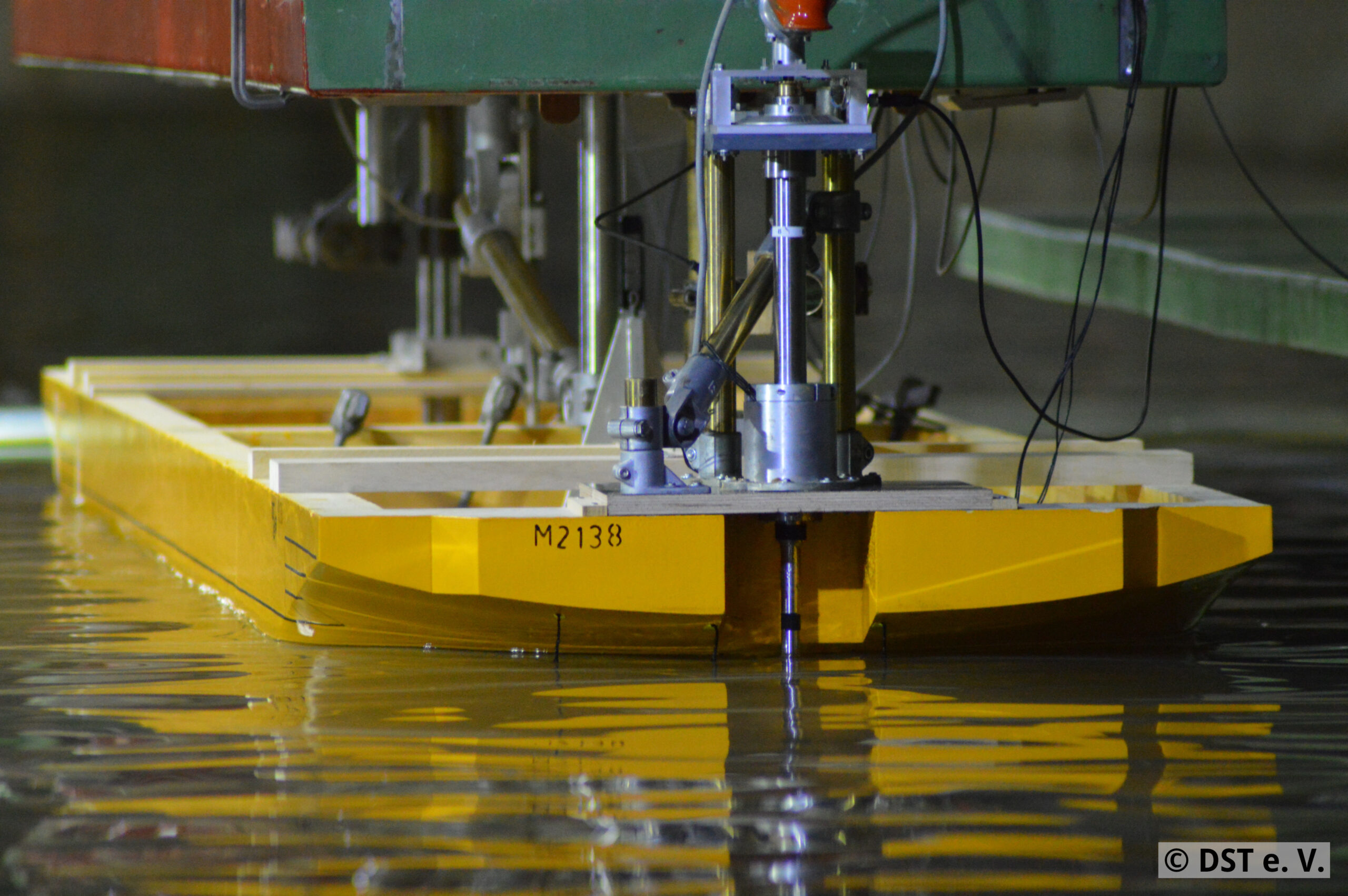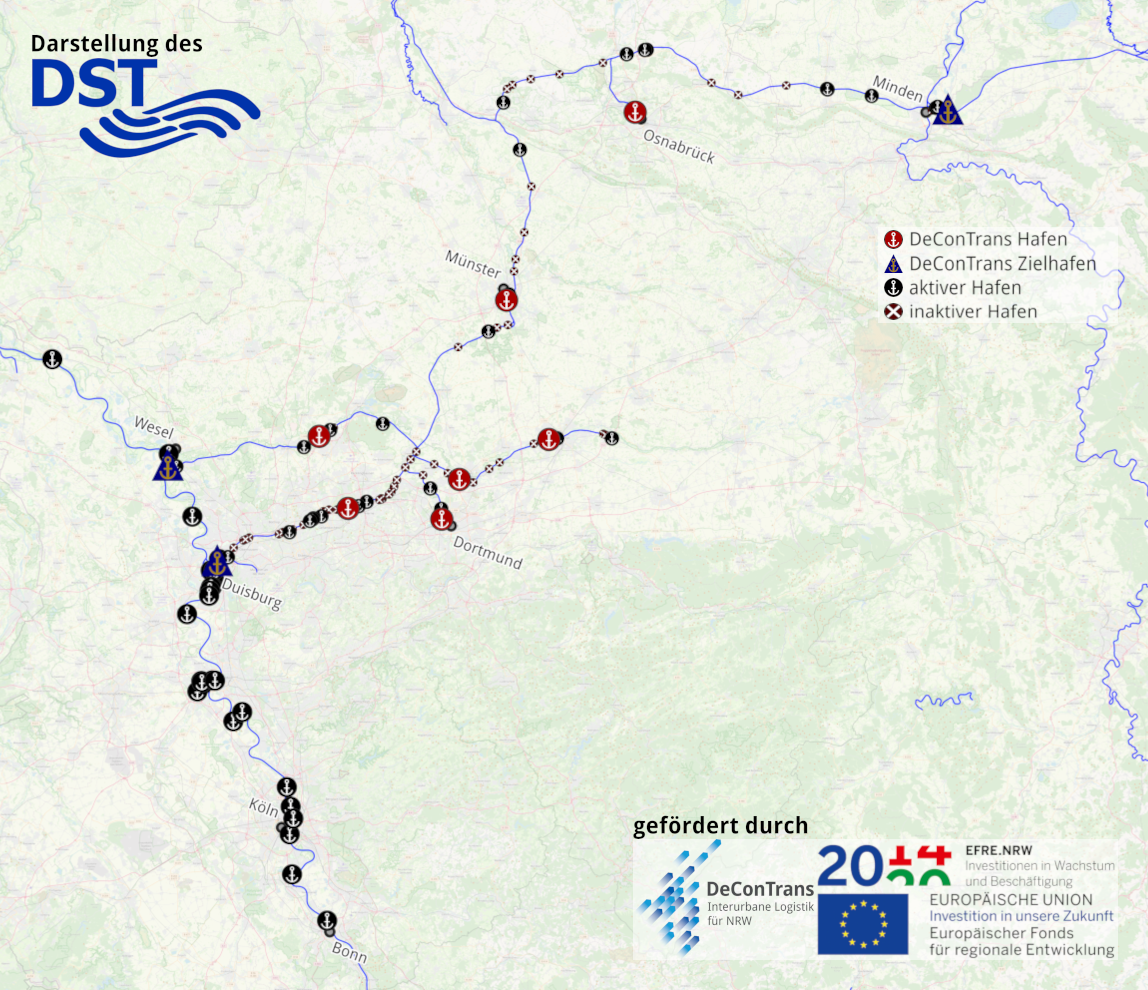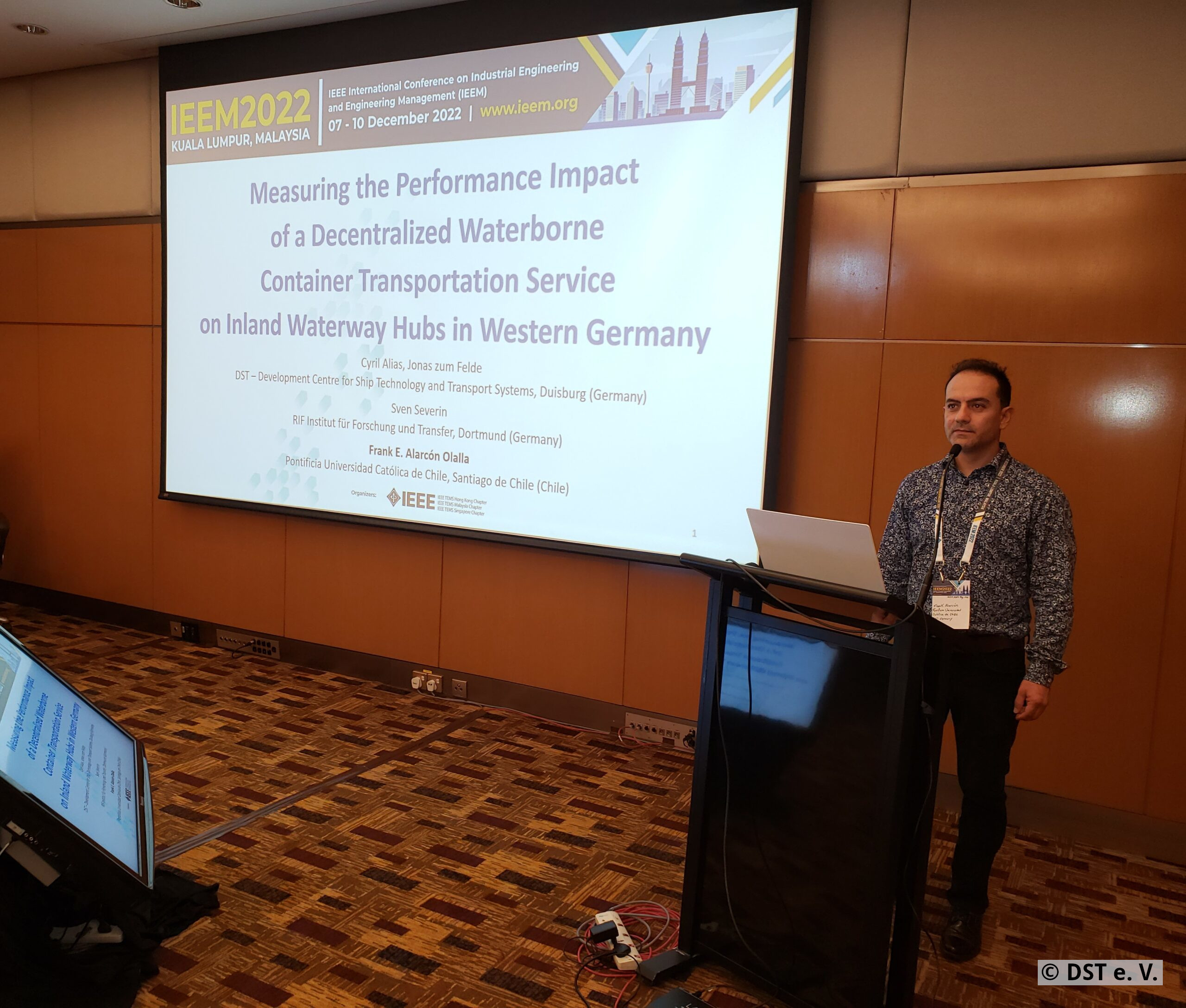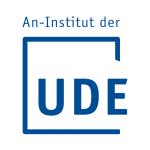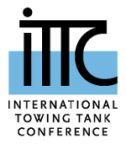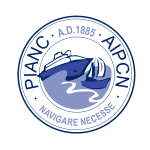DeConTrans
Innovative Konzepte für einen dezentralen Containertransport auf der Wasserstraße
Entwicklung eines Konzeptes zur Containerverteilung in Nordrhein-Westfalen mit Hilfe von kleinen Binnenschiffen und dezentralen Umschlagstellen
Der zunehmende Containertransport und das damit einhergehende Wachstum des Straßengüterverkehrs führt in Metropolregionen wie dem Rhein-Ruhr Gebiet dazu, das die Straßeninfrastruktur an ihre Grenzen kommt. Die Überlastung der Straßen führt zu einer erhöhten Lärmbelastung und Umweltverschmutzung, sowie einem verstärkten Stauaufkommen. Die Binnenschifffahrt und die deutschen Wasserstraßen insbesondere im westdeutschen Kanalnetz bieten der Logistik einen beträchtlichen Anteil an ungenutzten Kapazitäten.
Daher präsentiert sich als Lösung für die Ausgangslage eine verstärkte Nutzung der Binnenschifffahrt. Diese bietet einen kosten- und energieeffizienteren Transport, jedoch sind die Entscheidungsträger sich dieser Tatsache oftmals nicht ausreichend gewahr und so wird das Binnenschiff primär in den Ballungsräumen entlang des Rheins eingesetzt. Das Projekt DeConTrans fokussiert dabei die Möglichkeiten des Container-Hinterlandverkehrs auf dem westdeutschen Kanalnetz als ein Zubringerverkehr zu und von den Rheinhäfen.
DeConTrans bietet einen innovativen Ansatz für den Containertransport per Binnenschiff, baut auf vorhandenen Transportkonzepten auf und ergänzt diese sinnvoll. Es ist ein dezentrales Konzept auf Basis kleiner, hybridelektrisch angetriebener (sowie künftig automatisierbarer) Schiffe. Das Konzept lässt sich nach aktuellem Projektstand in vier miteinander verbundene Teilkonzepte aufteilen:
Logistikkonzept: Nach Durchführung intensiver Recherchen und Experteninterviews wurden insgesamt 105 mögliche Umschlagstellen und sechs geeignete, befahrbare Kanäle im westdeutschen Kanalnetz identifiziert. Zu den 105 Umschlagstellen gehören unter anderem die Häfen von Dortmund, Hamm, Herne, Münster und Osnabrück, aber auch u.a. geeignete Hafenstrukturen von stillgelegten Kohlewerken. Zielhäfen des Containertransports sind Duisburg und Wesel, über welche der weitere Transport zu den Nordseehäfen läuft. Durch komplexe Allokationsregeln wurde bestimmt, welche Umschlagstelle welches Frachtaufkommen erhält. Im Transportnetz besteht somit realitätsgetreu abgebildeter Güterfluss. Ein Kostenvergleich mit bestehenden Transportkonzepten, die das westdeutsche Kanalsystem nicht nutzen, steht noch aus.
Schiffskonzept: Es werden kleine, für das Kanalsystem geeignete Schiffe (8 bis 36 TEU) entwickelt. Der Transport kann mit einer oder ggfs. auch zwei Containerlagen erfolgen. Die Konfiguration der Schiffe ist an die Gegebenheiten des Kanalsystems angepasst und es liegen u.a. ein hybridelektrischer Antrieb sowie automatische Festmachersysteme vor. Es werden zudem Szenarien mit unterschiedlichen Personaleinsatzplänen geprüft.
Umschlagskonzept: Sofern vorhanden, wird auf die bestehende Containerumschlagsstruktur der Umschlagsstellen zurückgegriffen. Weitere Umschlagssysteme, ein auf dem Schiff fest stationierter und ein mobiler Bord-Kran, werden auf Eignung geprüft. Diese sollen den Umschlag an Umschlagsstellen, die keine aktiven oder ausreichenden Strukturen aufweisen, ermöglichen.
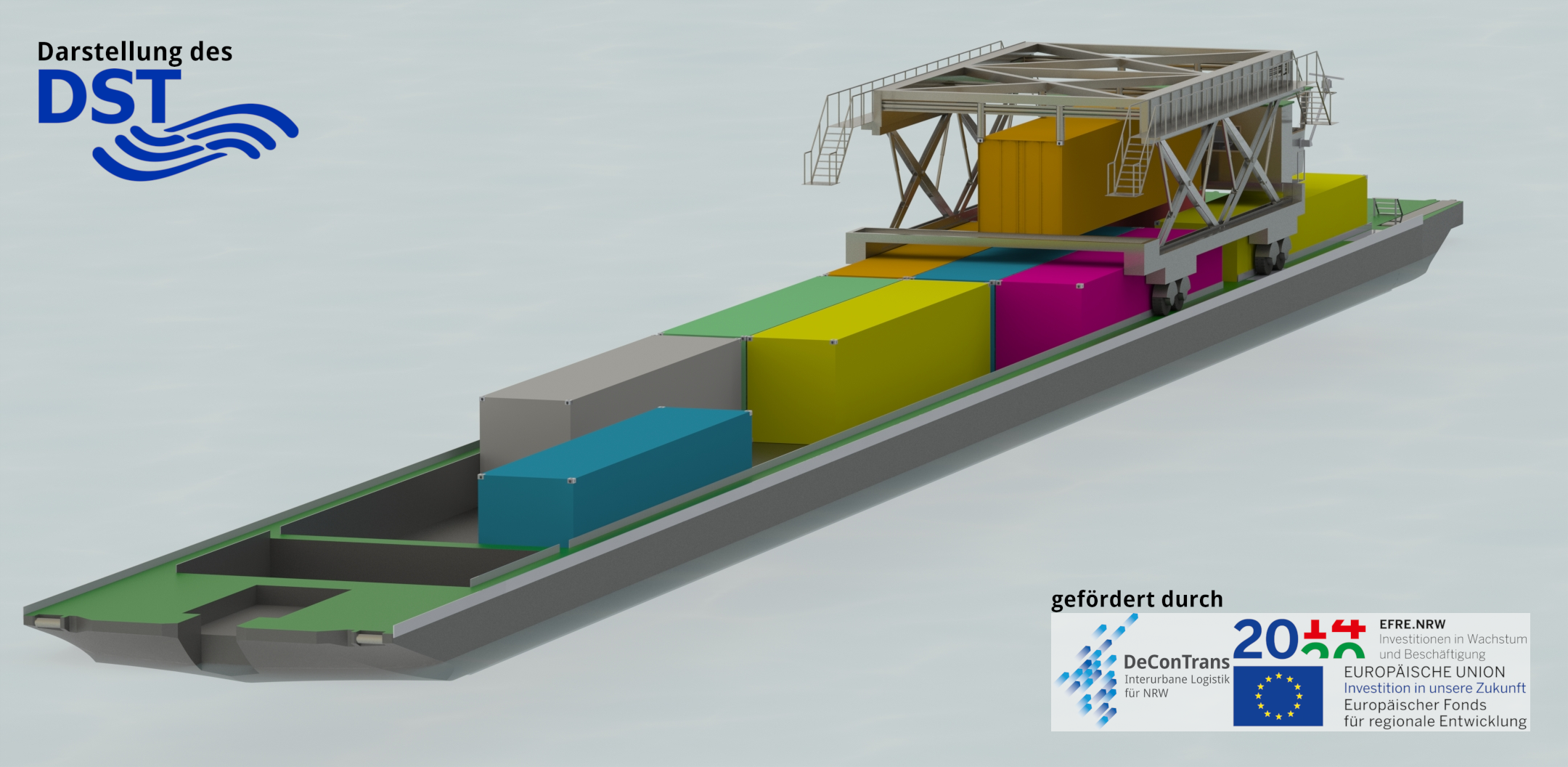 CAD-Rendering des Bordkrankonzepts für Nutzung im Kanalnetz.
CAD-Rendering des Bordkrankonzepts für Nutzung im Kanalnetz.
Integrationskonzept: Um die Tragfähigkeit des westdeutschen Kanalsystems in bestehende Transport- und Wirtschaftsstrukturen darzulegen, wird im Rahmen von DeConTrans ein Nachweis der Integrierbarkeit in heutige (globale) Lieferketten unter Einbindung aller beteiligten Akteure (Schiffe, Umschlagssystem, LKW) vorgelegt. Dafür sollen bestehende IT-Services und Datenmanagement-Applikationen genutzt werden, die bereits für bestehende Lieferketten erfolgreich im Einsatz sind.
Es wird eine Simulationsumgebung geschaffen, die die relevanten Systemkomponenten der vier genannten Konzepte prototypisch modelliert und die Simulation verschiedener Szenarien ermöglicht. Auf Basis dessen erfolgt mit Hilfe von vordefinierten Kriterien eine Bewertung verschiedener Gestaltungsoptionen, die bei der Wahl des integrierten Transportsystems zugrunde liegen.
Zusammen mit den beiden Forschungsvorhaben SPaCiH – SmartPark City Hubs und virtuelle Infrastruktur und iWALD – Integral World and Local Delivery bildet DeConTrans einen konsistenten Prozessablauf der Zukunft, in dem die Güter aus den Seehäfen über die Wasserstraße nach Nordrhein-Westfalen gebracht und an den zahlreichen Umschlagstellen im westdeutschen Kanalnetz entladen (DeConTrans), dort verschiedenen Wertschöpfungsprozessen, wie z.B. Sortier- oder Veredelungsschritten, zugeführt und für den Weitertransport vorbereitet (SPaCiH) und anschließend in der urbanen Distribution in standardisierten Kleinladungsträgern zum Endempfänger transportiert werden (iWALD). Aus diesem Grund haben sich die drei Vorhaben zu einer Projektfamilie zusammengeschlossen, um die jeweiligen Entwicklungen auf die Schwesterprojekte auszurichten und dadurch eine künftige Kompatibilität der Ergebnisse sowie die Realisierbarkeit des Prozessablaufs sicherzustellen.
Insgesamt leistet das Projekt DeConTrans somit einen Beitrag dazu, dass die Verkehrsträger Straße und Schiene entlastet und die inländischen Wasserstraßen und deren Infrastruktur wirtschaftlich ausgelastet werden. Zugleich werden Emissionen reduziert und nachhaltiges Wirtschaften ermöglicht.
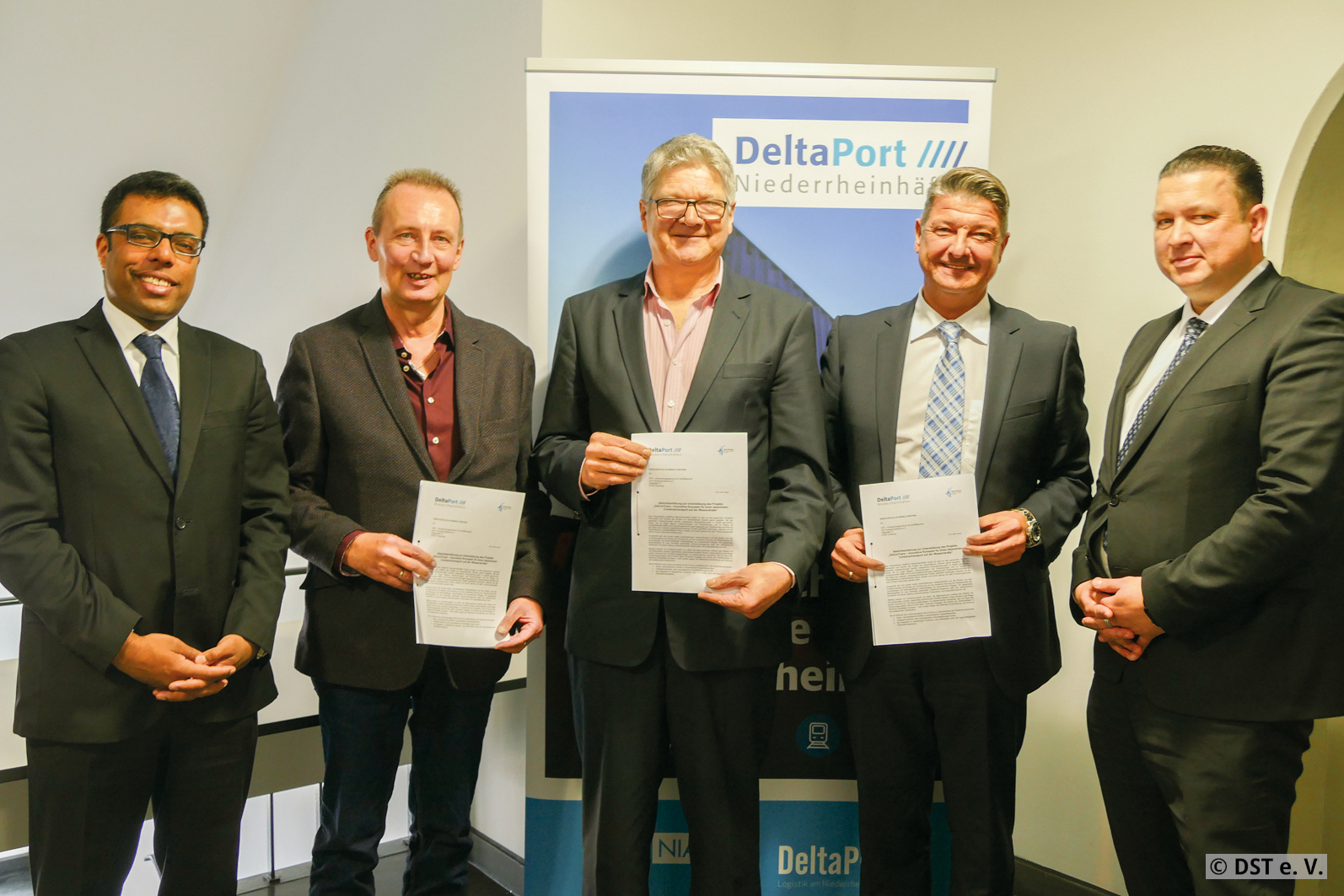 Aufnahme der DeltaPort GmbH & Co. KG in den Projektbeirat.
Aufnahme der DeltaPort GmbH & Co. KG in den Projektbeirat.
Als Teil der Online-Veranstaltung „Urbane Versorgung über die Wasserstraße“ im Rahmen der Veranstaltungsreihe „JRF vor Ort“ fand am 28. März 2022 die Abschlussveranstaltung des Forschungsvorhabens „DeConTrans – Innovative Konzepte für einen dezentralen Containertransport auf der Wasserstraße“ mit Beteiligung der beiden JRF-Mitgliedsinstitute – DST und RIF – statt. Neben einer Reihe fachlich verwandter Vorträge aus dem ganzen Bundesgebiet konnten dort die Ergebnisse der DeConTrans-Simulationsstudie vorgestellt werden. Zudem diskutierten in einer Podiumsdiskussion Vertreter aus dem Schifffahrtsgewerbe und der Hafenwirtschaft sowie aus Politik und Forschung über die Potenziale der Citylogistik auf der Wasserstraße und den hierfür notwendigen Bedingungen.
Ein Mitschnitt der Veranstaltung ist über den YouTube-Kanal der JRF verfügbar: Urbane Versorgung über die Wasserstraße
Wiss. Publikationen:
Alias, C., zum Felde, J., Gründer, D., Severin, S., & Alarcón Olalla, F.E. (2023). Assessing the benefits of a decentralized waterborne container transportation service from the perspective of a canal port. In: Picado Santos L. de, Pinho de Sousa J., Arsenio E. (Eds.) Transportation Research Procedia: Vol. 72, TRA Lisbon 2022: Conference Proceedings Transport Research Arena (pp. 4444–4451). Amsterdam, Netherlands: Elsevier.
DOI – Link
Alias, C., zum Felde, J., Gründer, D., Severin, S., & Alarcón Olalla, F.E. (2023). Evaluating the Effects of a Decentralized Waterborne Container Transportation Service from the Perspective of an Inland Waterway Transport Hub. In: Proff, H. (Ed.) Towards the New Normal in Mobility: Technische und betriebswirtschaftliche Aspekte (pp. 811–837). Wiesbaden, Germany: Springer Gabler.
DOI – Link
Alias, C., zum Felde, J., & Severin, S. (2023). Examining the Logistics Performance of a Decentralized Waterborne Container Transportation Service in the West German Canal Network with the Help of Discrete-Event Simulation. In Y. Li, Y. Hu, P. Rigo, F. E. Lefler, & G. Zhao (Eds.), Lecture Notes in Civil Engineering: Vol. 264, Proceedings of PIANC Smart Rivers 2022: Green Waterways and Sustainable Navigations (1st ed., pp. 1357–1372). Singapore: Springer Nature.
DOI – Link
Alias, C., Gründer, D., Ley, J., Broß, H., Dahlke, L., & zum Felde, J. (2023). Wasserstraßen als urbane Versorgungsadern. In D. H. Schramm (Ed.), UNIKATE – Berichte aus Forschung und Lehre: Vol. 59. Mobilität und Transport im Wandel: Strategie und Umsetzung (pp. 58–71). Essen, Germany: Universität Duisburg-Essen. ISBN: 978–3–934359–59–8.
DOI – Link
Alias, C., zum Felde, J., Severin, S., & Alarcón Olalla, F.E. (2022). Measuring the Performance Impact of a Decentralized Waterborne Container Transportation Service on Inland Waterway Hubs in Western Germany. In 2022 IEEE International Conference on Industrial Engineering and Engineering Management (IEEM) (pp. 965–969). Piscataway (NJ), USA: IEEE.
DOI – Link
Alias, C. & zum Felde, J. (2022). Evaluating the economic performance of a decentralized waterborne container transportation service using autonomous inland vessels. In 2022 IEEE 25th International Conference on Intelligent Transportation Systems (ITSC) (pp. 3571–3576). Piscataway (NJ), USA: IEEE.
DOI – Link
Alias, C., zum Felde, J., Broß, H., and Severin, S. (2022). Evaluating the impact of mobile onboard cranes on the logistics performance of a decentralized waterborne container transportation service. In N. Zrnic, G. Kartnig, & S. Bosnjak (Eds.), XXIV. International Conference on Material Handling, Constructions and Logistics: Proceedings (pp. 161-166). Belgrade, Serbia: Univerzitet u Beogradu, Mašinski Fakultet.
Link
zum Felde, J., Alias, C. and Goudz, A. (2022). Comparing generic and dedicated tools of discrete-event simulation for examining inland waterway transportation services. In 2022 IEEE 6th International Conference on Logistics Operations Management (GOL). Piscataway (NJ), USA: IEEE.
DOI – Link
Ley, J., Broß, H., & Kämmerling, E. (2022). Experimental Investigation of Passing Ship Effects on Moored Ships in a Canal Port. In M. Candries, E. Lataire, Z. Yuan, K. Eloot, & G. Delefortrie (Eds.), Proceedings of the 6th MASHCON International Conference on Ship Manoeuvring in Shallow and Confined Water – with special focus on port manoeuvres. Glasgow, United Kingdom.
Link
Alias, C., Broß, H., zum Felde, J., & Gründer, D. (2021). Enabling Decentralized Transshipment in Waterborne Container Transportation. In C. Jahn, W. Kersten, & C. M. Ringle (Eds.), Proceedings of the Hamburg International Conference of Logistics (HICL): Vol. 32, Adapting to the Future: Maritime and City Logistics in the Context of Digitalization and Sustainability. Pt. 2 (1st ed., pp. 137-166). Berlin, Germany: epubli GmbH.
DOI – Link
Alias, C., Pusch, L., Gründer, D., Dahlke, L., Broß, H., Heerwagen, O., & zum Felde, J (2021). Designing a Decentralized Waterborne Container Transportation Service using Small Inland Vessels. In Proff, H. (Ed.), Making Connected Mobility Work: Technische und wirtschaftliche Aspekte (pp. 573–601). Wiesbaden, Germany: Springer Fachmedien Wiesbaden.
DOI – Link
Alias, C., Dahlke, L., Heerwagen, O., Gründer, D., zum Felde, J., Pusch, L., & Severin, S. (2020). Identifying Suitable Transshipment Points for a Decentralized Waterborne Container Transportation Network. In 2020 IEEE International Conference on Industrial Engineering and Engineering Management (IEEM) (pp. 799–806). Piscataway (NJ), USA: IEEE.
DOI – Link
Alias, C., Gründer, D., Dahlke, L., zum Felde, J., & Pusch, L. (2020). Determining the Freight Volumes for a Decentralized Waterborne Container Transportation Service. In 2020 IEEE International Conference on Industrial Engineering and Engineering Management (IEEM) (pp. 786–793). Piscataway (NJ), USA: IEEE.
DOI – Link
Medienspiegel:
- Innovationsradar zur Mobilitäts- und Raumwende (Kompetenznetzwerk Umweltwirtschaft.NRW) (Mai 2023): DeConTrans – innovative Konzepte für einen dezentralen Containertransport auf der Wasserstraße (S. 34)
- einundzwanzig (Heft 2/2022): Bringdienste mit kleinen Schiffen (S. 22/23)
- Binnenschifffahrt Online (16.05.2022): Das Binnenschiff kann City-Logistik [ebenfalls in Heft 05/2022, S. 38]
- DOCK.Hafenmagazin (Dortmunder Hafen 21) (Heft 02/2022): Die Zukunft der Binnenschifffahrt (S. 8-9)
- BDB REPORT (Heft 01/2022): Branche informiert sich über Automatisierung und alternative Antriebe (S. 14-15)
- Johannes-Rau-Forschungsgemeinschaft (28.03.2022): Veranstaltungsrückblick – JRF vor Ort: Urbane Versorgung über die Wasserstraße
- Logistik-Initiative Hamburg (18.06.2021): Marktanalyse zur Nutzung städtischer Kanäle und Fleete auf der letzten Meile veröffentlicht
- Deutsche Verkehrs-Zeitung (DVZ) (27.04.2021): Citylogistik auf dem Wasser
- Maritimes Cluster Norddeutschland (22.03.2021): Veranstaltungsrückblick – Die Bedeutung der Binnenschifffahrt für Europa
- econo (Heft 01/2021): Neue Ideen für die Lebensadern der Region (S. 86/87)
- Zuse-Gemeinschaft (21.01.2021): Simulation untersucht Logistikkonzept mit kleinen Schiffen als realistische Alternative zu LKW Transporten
- Navigation Ports & Intermodalité (NPI) (Heft 01/2021): L’Allemagne est à la traîne mais des projets existent [frz., Deutschland bleibt zurück, aber es gibt Pläne] (S. 32/33)
- Bractwo Mokrego Pokładu (27.12.2020): Przełomowe koncepcje dla żeglugi na płytkich wodach śródlądowych! [pol., Bahnbrechende Konzepte für die Navigation im flachen Wasser!]
- DOCK. Hafenmagazin (Dortmunder Hafen 21) (Heft 04/2020): Der Kanal wird 2021 zur Teststrecke (S. 7)
- Deutsche Verkehrs-Zeitung (DVZ) (09.09.2020): DeltaPort will Verkehrsverlagerung vorantreiben
- Deutschlandfunk (06.09.2020): Flache Frachter – Neue Transportkonzepte für die Binnenschifffahrt
- Binnenschifffahrt Online (01.09.2020): Logistikprojekt strebt Verkehrsverlagerung an
- Deutsche Verkehrs-Zeitung (DVZ) (21.04.2020): Mit dem Schiff in die Stadt
- Schiffahrt Hafen Bahn und Technik (SUT) (Heft 02/2020): Regiocarrier für Container (S. 108-109)
- Binnenvaartkrant (11.02.2020): Met 24 TEU over Duitse kanalen [niederl., Mit 24 TEU über deutsche Kanäle] (S. 7)
- DeltaPort Niederrheinhäfen (06.02.2020): Transport auf der Wasserstraße: DeltaPort Niederrheinhäfen begleiten Forschungsprojekt zur Verkehrsverlagerung
- Binnenschifffahrt Online (01.02.2020): Mit kleinen Schiffen gegen den Verkehrsinfarkt
- Niederrhein Wirtschaft (Magazin der Niederrheinischen IHK) (Heft 01/2020): Von der Straße rein ins Wasser
- Binnenvaartkrant (28.01.2020): Regiocarrier: nieuw type schip voor kleine terminals en verladers [ndl., Regiocarrier: Neuer Schiffstyp für kleine Terminals und Verlader] (S. 3)
- logistik journal (28.01.2020): Transport auf der Wasserstraße
- Niederrhein Nachrichten (25.01.2020): Niederrheinhäfen: Arbeit an der Verkehrsverlagerung (S. 13)
- ShortSeaShipping Inland Waterway Promotion Center (spc) (25.01.2020): Transport auf der Wasserstraße
- THB (23.01.2020): „Deltaport“-Häfen wirken an innovativem Projekt mit
- Transport Online (22.01.2020): DeltaPort Niederrheinhäfen: Von der Straße auf das Wasser
- Binnenschifffahrt Online (22.01.2020): Kleinere Schiffe sollen Verkehrsverlagerung beflügeln
- Maas Rhein Zeitung (21.01.2020): DeltaPort Niederrheinhäfen begleiten Forschungsprojekt zur Verkehrsverlagerung
- Deutsche Verkehrs-Zeitung (DVZ) (20.01.2020): Deltaport beteiligt sich an DeConTrans
- Neue Ruhr Zeitung (NRZ) (21.01.2020): DeltaPort will Kanalnetz effektiver nutzen
- Tagesspiegel (12.12.2019): Captain Computer übernimmt
- DOCK. Hafenmagazin (Dortmunder Hafen 21) (Sonderheft 120 Jahre Dortmunder Hafen): Die Zukunft der Binnenschifffahrt (S. 31)
- Johannes-Rau-Forschungsgemeinschaft (10.04.2019): Veranstaltungsrückblick – JRF vor Ort: Logistik im Wandel
- Binnenschifffahrt Online (01.12.2018): Binnenschiffe im Schwarm im Kanal
- Logistik Heute (14.11.2018): Schifffahrt: Forschung untersucht neues Transportkonzept
Projektlaufzeit:
- Oktober 2018 – März 2022
Förderkulisse:
- EFRE.NRW Leitmarktwettbewerb „MobilitätLogistik.NRW“, 3. Wettbewerbsrunde
Projektkoordination:
- Jonas zum Felde, M.Sc.
E-Mail: zumfelde@dst-org.de
Tel.: 0203 99369-72
Projektleitung:
- Cyril Alias, M.Sc.
E-Mail: alias@dst-org.de
Tel.: 0203 99369-52
Verbundpartner:
- DST – Entwicklungszentrum für Schiffstechnik und Transportsysteme e. V.
- RIF Institut für Forschung und Transfer e. V.
Assoziierte Partner:
- Generaldirektion Wasserstraßen und Schifffahrt (GDWS)
- Konecranes Terex MHPS GmbH
- DeltaPort GmbH & Co. KG
- Eisenbahn- und Hafenbetriebsgesellschaft Region Osnabrück mbH
- Gelsen-Log – Gelsenkirchener Logistik-, Hafen- und Servicegesellschaft mbH
- Hafenband am Mittellandkanal
- MARLO Consultants GmbH
- Mercatronics GmbH
- Mindener Hafen GmbH
- Modal 3 Logistik GmbH
- MSG eG
- MTS Wasseropal GmbH (HTS Group)
- w3logistics AG
Assoziierte Projekte:
Vorgängerprojekt:
Folgeprojekte:
